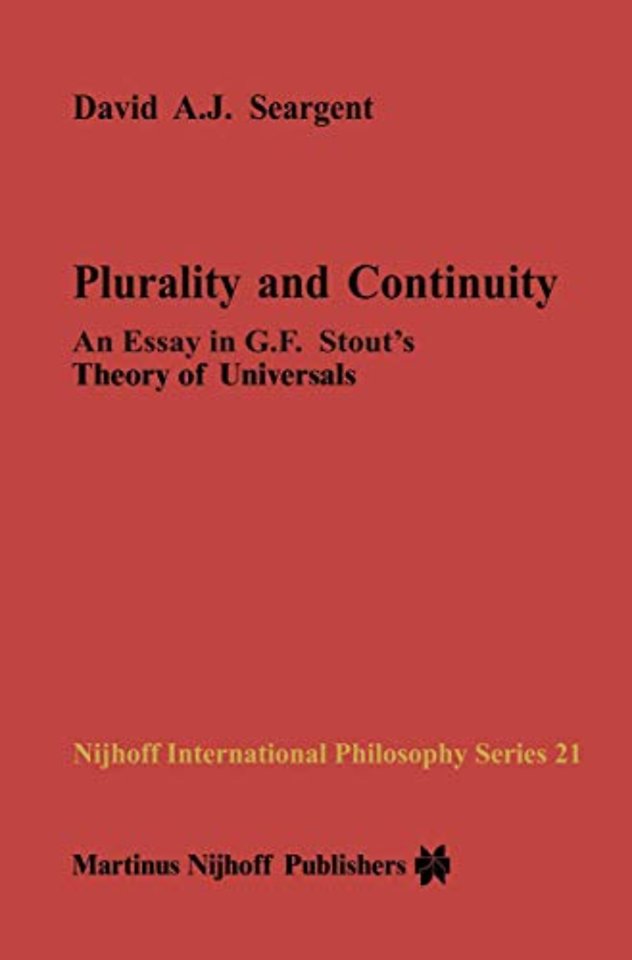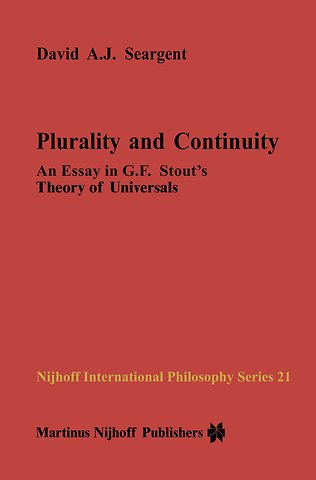Plurality and Continuity
An Essay in G.F. Stout’s Theory of Universals
Paperback Engels 2011 9789401087698Samenvatting
by D. M. Armstrong In the history of the discussion of the problem of universals, G. F. Stout has an honoured, and special. place. For the Nominalist, meaning by that term a philosopher who holds that existence of repeatables - kinds, sorts, type- and the indubitable existence of general terms, is a problem. The Nominalist's opponent, the Realist, escapes the Nominalist's difficulty by postulating universals. He then faces difficulties of his own. Is he to place these universals in a special realm? Or is he to bring them down to earth: perhaps turning them into repeatable properties of particulars (universalia in res), and repeatable relations between universals (universalia inter res)? Whichever solution he opts for, there are well-known difficulties about how particulars stand to these universals. Under these circumstances the Nominalist may make an important con cession to the Realist, a concession which he can make without abandoning his Nominalism. He may concede that metaphysics ought to recognize that particulars have properties (qualities, perhaps) and are related by relations. But, he can maintain, these properties and relations are particulars, not universals. Nor, indeed, is such a position entirely closed to the Realist. A Realist about universals may, and some Realists do, accept particularized properties and relations in addition to universals. As Dr. Seargent shows at the beginning of his book. a doctrine of part icularized properties and relations has led at least a submerged existence from Plato onwards. The special, classical.
Specificaties
Lezersrecensies
Inhoudsopgave
Rubrieken
- advisering
- algemeen management
- coaching en trainen
- communicatie en media
- economie
- financieel management
- inkoop en logistiek
- internet en social media
- it-management / ict
- juridisch
- leiderschap
- marketing
- mens en maatschappij
- non-profit
- ondernemen
- organisatiekunde
- personal finance
- personeelsmanagement
- persoonlijke effectiviteit
- projectmanagement
- psychologie
- reclame en verkoop
- strategisch management
- verandermanagement
- werk en loopbaan

